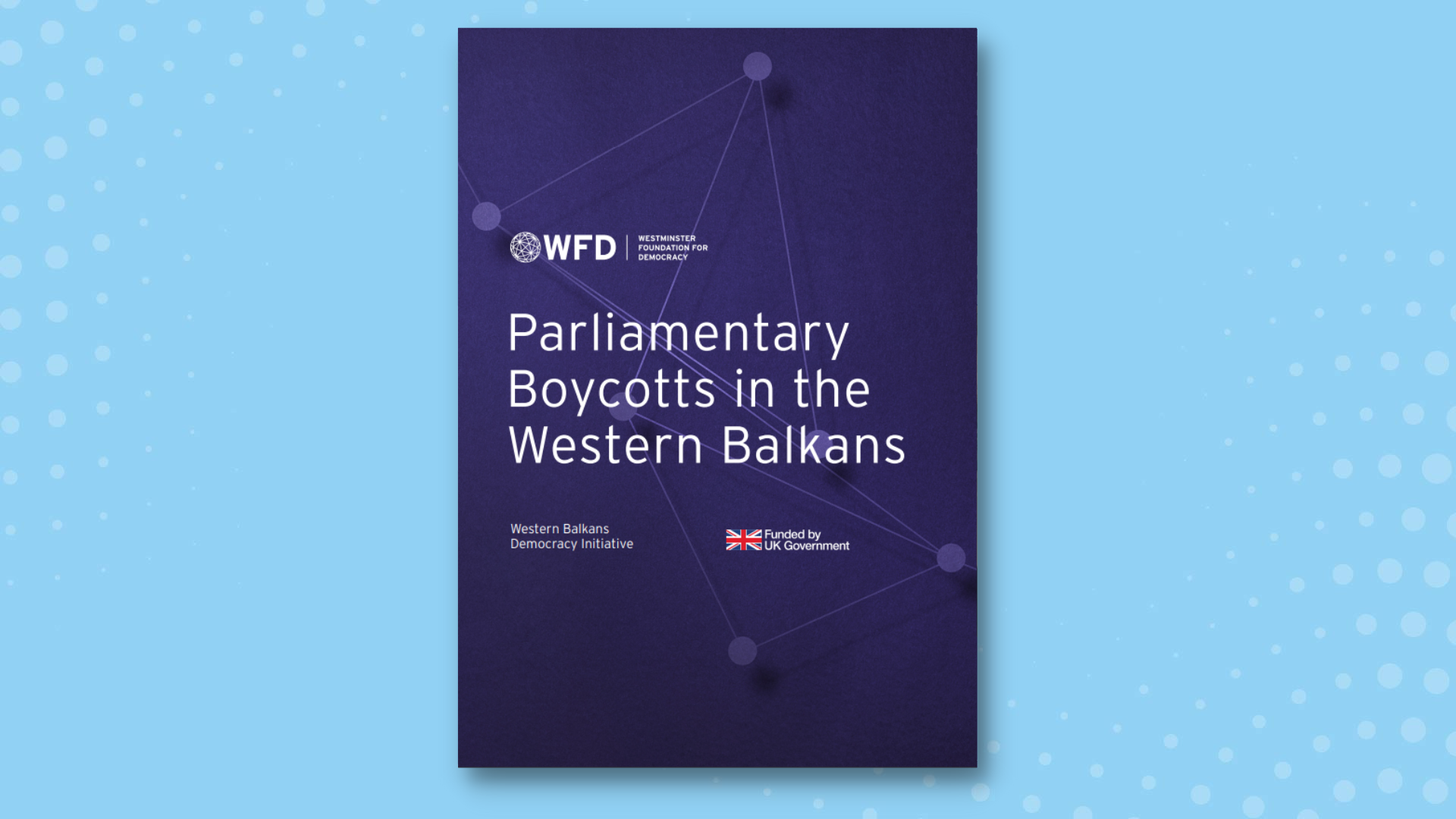The practice of official or unofficial boycotts of legislatures, the main representative institution for citizens, has become a norm in political life in the region. In recent years – and decades in some cases – boycotting of parliament took place in Albania, Bosnia and Herzegovina, North Macedonia, Montenegro, Kosovo and Serbia. From boycotting a single vote to avoiding parliament for an extended period of time, the tactic is being used in different ways.
At present (July 2019), Serbia, Albania and Montenegro are undergoing boycotts of parliament. To better understand the phenomenon and its potential implications for parliamentary support projects in the Western Balkans, Westminster Foundation for Democracy (WFD) through the Western Balkans Democracy Initiative commissioned a research study on the causes and effects of boycotting parliament.
The study finds that the boycotts contributed to political and electoral crises in Western Balkan countries. Often the decision to boycott parliament is related to an opposition view that it is being side-lined and has limited or no influence on decision-making and law-making, or minimal opportunities for parliamentary oversight. In situations when parliaments are boycotted, the oversight and representative parliamentary functions are impacted. When no opposition parties are present in parliament, legislative practice can suffer. For example, MPs can negatively influence the regulatory environment and change the process through which parliaments function (mainly through changes in parliamentary rules of procedure). Boycotts have a negative impact on relations between independent institutions and parliaments. Citizens’ interests are not represented and boycotts can contribute to extended electoral and political crises.
The aim of the study is to gain a better understanding of boycotts of parliament and their:
- Causes;
- Political Context;
- Effects on political practice and culture;
- Effects on legal and regulatory frameworks;
- Effect on the relationship between parliaments and independent institutions;
- Effect on the representation of citizens in parliament.
The diverse ethnic, political and legal environments in the Western Balkans mean that when analysing boycotting of parliament, it is necessary to take into account the different contexts in different countries. Causes for boycotts in the Western Balkans include, ethnic issues; pre/post-election purposes; lack of visibility of opposition parties; need to generate communication on specific issues; coalition-building between various political parties; and the nature of Western Balkan parliaments – legislative in nature with no developed oversight practices, which has contributed to the idea to opt for boycotts.
Boycotts often result in setting up “technical” governments to lead the preparation and conduct of “credible” elections.
A WFD-organised regional conference in Belgrade in March 2019 brought together the researchers who conducted the study and MPs from the six parliaments in the Western Balkans region. The views of MPs confirm that proportional representation as an electoral system, which leads to less direct accountability to constituents and more accountability to political parties, increases the likelihood of more boycotts in the future. Underdeveloped representative and oversight functions create incentives for potential future boycotts.
